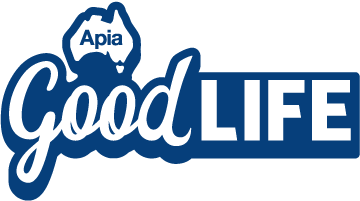It’s not easy to think about the end of your life. However, preparation and planning — considering things like your will, and how your family will cover your funeral costs — can make this period slightly less difficult for your loved ones.
How to plan for your funeral
You may find it useful to consider these steps:
- Create a funeral plan. Think about the things that are important to you, such as your internment choice (eg, burial or cremation) and how you’d like your funeral service to run. For instance, is there a particular type of flower you’d like to include, or a favourite song?
- Understand the cost of your funeral. Funerals can be expensive. Funeral Insurance may be able to help with some of the costs — keep reading to learn more.
- Share your funeral plan with your loved ones. They’ll be able to support you by carrying out your wishes. You may pick one trusted family member or friend, or even a couple, to be responsible for this task. If anything in your plan changes, keep them updated.
- Consider the details of the ceremony. If you’ve decided to have a ceremony, you may like to think about the details of the service and who you’ll ask to lead it and/or speak at it.
- Put together important information and documents. Doing so will assist your loved ones in handling your affairs after you pass away. You could also think about whether you’d like to record your life in any way — having access to an autobiographical text or recording may be invaluable for future generations.
Understanding the costs involved
According to the Moneysmart website, the cost of a funeral can range ‘from $4,000 for a basic cremation to around $15,000 for a more elaborate burial.’ You may need to account for the costs of things like your burial or cremation, a cemetery plot and funeral director fees.
Consider Funeral Insurance
One way to help cover your funeral expenses is with Funeral Insurance. With Apia, you’ll pay a monthly, fortnightly or annual premium. When you pass away, your loved ones will receive a lump sum payment to help cover the costs of your funeral or settle your affairs.
Your premium will be calculated based on a range of factors — such as your cover level, payout amount, and age, — and although your premium may change if you make changes to your policy or we change the premium rates, your premium doesn't go up every year just because you get older.*
Get a Funeral Insurance quote
What does Funeral Insurance cover?
Apia’s Funeral Insurance includes:
- Your choice of a fixed coverage amount from $3,000 to $15,000 (this can be increased to up to $25,000 once your policy is in place).
- Accidental death cover only for the first 12 months and cover for any cause of death after the first 12 months.
- A fast payout, usually within 24 hours of providing all of the information required to make a claim.
- A bonus 10% more cover at no extra cost once you’ve had your Apia policy for at least five consecutive years.
- Upon claim, we’ll pay the greater of your cover amount plus any Bonus Cover, or 100% of the premiums you paid toward your funeral insurance cover. The Value Promise does not apply to the optional Accidental Death Benefit. There is also a 70% Value Promise option available that can reduce your premium.
Who can apply for a policy?
Apia Funeral Insurance is available for people who permanently reside in Australia and are:
- aged 45 to 80
- an Australian citizen or Australian permanent resident, or
- a New Zealand citizen.
What to look for in a policy
When considering a funeral insurance policy, you might find it useful to think about the following questions:
- How much will your funeral cost, and therefore how much cover is likely to be useful?
- Will the cost of your premiums exceed the amount of cover you’ve selected?
- Do premiums increase as you get older?
- What limits apply to any given policy?
- Is accidental death covered?
For information about Apia’s Funeral Insurance policies, please read the Product Disclosure Statement (PDS). You can also chat with the Apia Funeral Insurance team by calling 1300 340 655, Monday to Friday from 8am to 6pm (AEDT).
Apia Funeral Insurance is issued by TAL Life Limited ABN 70 050 109 450 AFSL 237848 (TAL Life) which is part of the TAL Dai-ichi Life Australia Pty Limited ABN 97 150 070 483 group of companies (TAL). TAL is not part of the Suncorp Group. TAL companies use the Apia brand under licence from the Suncorp Group. The different entities of TAL and the Suncorp Group of companies are not responsible for, or liable in respect of, products and services provided by the other.
Any advice on this page in connection with Apia Funeral Insurance is general in nature and is provided by Platform Ventures Pty Ltd ABN 35 626 745 177 AFS Representative Number 001266101 (PV). PV is part of the Suncorp Group and an authorised representative of TAL Direct Pty Limited ABN 39 084 666 017 AFSL 243260 (TAL Direct). General advice does not take into account your individual needs, objectives or financial situation. Please consider the Product Disclosure Statement before buying this insurance. Target Market Determination also available.
